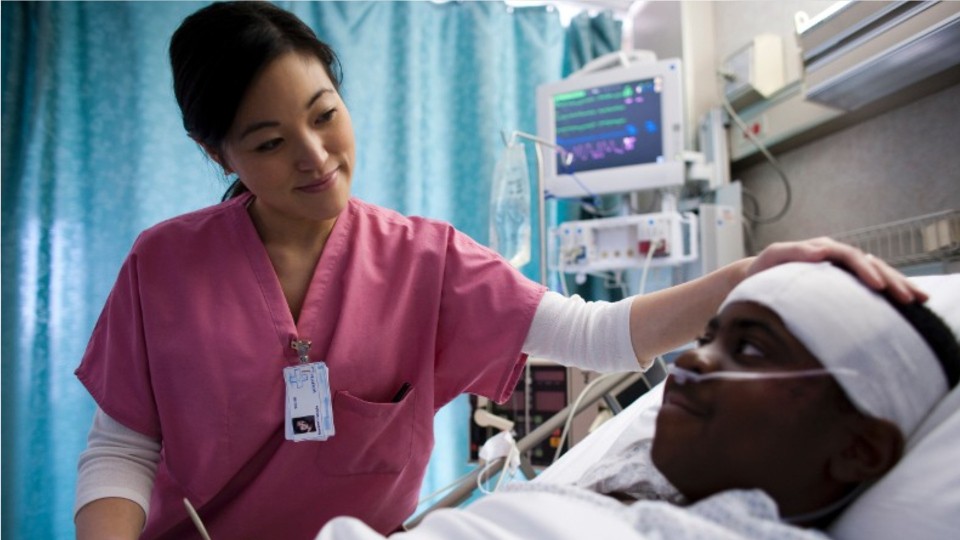Acute Care Nurses
Cardiovascular ICU Nurse (Cardiovascular Intense Care Unit Nurse), Cardiovascular Surgery Acute Care Nurse Practitioner (Cardiovascular Surgery ACNP), Charge Nurse, Staff Nurse
What they do:
Provide advanced nursing care for patients with acute conditions such as heart attacks, respiratory distress syndrome, or shock. May care for pre- and post-operative patients or perform advanced, invasive diagnostic or therapeutic procedures.
On the job, you would:
- Discuss illnesses and treatments with patients and family members.
- Diagnose acute or chronic conditions that could result in rapid physiological deterioration or life-threatening instability.
- Perform emergency medical procedures, such as basic cardiac life support (BLS), advanced cardiac life support (ACLS), and other condition-stabilizing interventions.
Knowledge
Health
- medicine and dentistry
- therapy and counseling
Business
- customer service
- management
Education and Training
- teaching and course design
Arts and Humanities
- English language
Skills
Basic Skills
- reading work related information
- talking to others
Problem Solving
- noticing a problem and figuring out the best way to solve it
Social
- looking for ways to help people
- changing what is done based on other people's actions
Abilities
Verbal
- communicate by speaking
- listen and understand what people say
Ideas and Logic
- notice when problems happen
- make general rules or come up with answers from lots of detailed information
Attention
- pay attention to something without being distracted
- do two or more things at the same time
Visual Understanding
- see hidden patterns
Personality
People interested in this work like activities that include helping people, teaching, and talking.
They do well at jobs that need:
- Sincerity
- Perseverance
- Adaptability
- Empathy
- Stress Tolerance
- Self-Control
Technology
You might use software like this on the job:
Medical software
- eClinicalWorks EHR software
- GE Healthcare Centricity EMR
Presentation software
- Microsoft PowerPoint
Electronic mail software
- IBM Lotus Notes
- Microsoft Outlook
Education
Education: (rated 4 of 5)
bachelor's degree or
associate's degree
usually needed
associate's degree
usually needed
Job Outlook
Bright
New job opportunities are very likely in the future.
Explore More
- Advanced Practice Psychiatric Nurses
- Clinical Nurse Specialists
- Critical Care Nurses
- Paramedics
- Registered Nurses
You might like a career in one of these industries:
See more details at O*NET OnLine about Acute Care Nurses.





